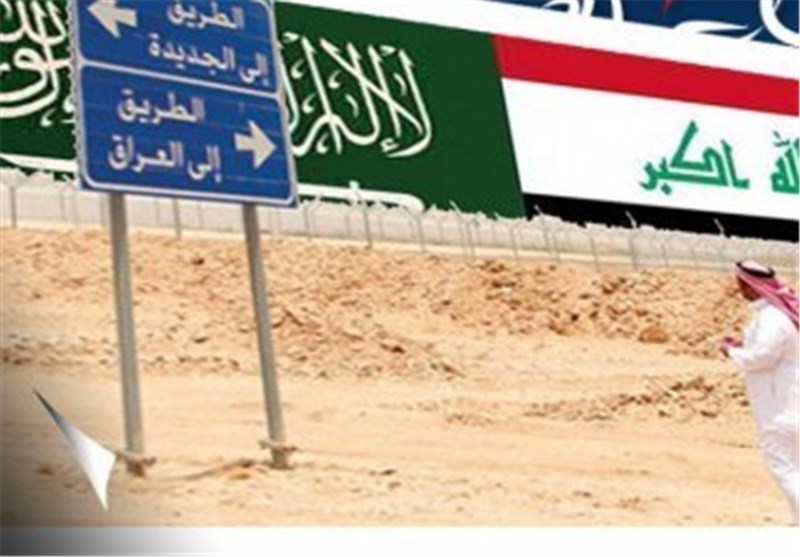-
Speaking to the website of the Strategic Council on Foreign Relations, Hassan Hanizadeh, an expert on the Middle East affairs, referred to Saudi Arabia’s recent attempts to buy land in Iraq and said: The Iraqi Prime Minister Mustafa al-Kadhimi through his recent measures in handing over land to Saudi Arabia, which has, of course, received a widespread reaction inside the country, is trying to come out of the circle of belief and take steps towards the circle of ethnicity. This is while political currents and parliamentary factions oppose this approach and for this reason, Al-Kadhimi will not be able to open the doors of Iraq to Saudi Arabia.
Hanizadeh added: In fact, the government of Mustafa al-Kadhimi, which emphasizes the Arab element in the foreign policy, is taking steps to strengthen relations with Riyadh, and since Iraq is facing economic problems, he is trying to take advantage of Saudi Arabia’s economic potential.
Referring to the point that experience has shown that wherever in an Arab country, especially in a country with specific religion and political approach, Saudi Arabia has entered, it provokes sectarian war and sedition in that country, he said: Since 2003 and the overthrow of the former Iraqi regime, Saudi Arabia has attempted to establish its spiritual and physical presence in that country, but due to the intelligence of former Iraqi officials, especially the religious authorities, Saudi Arabia has not been able to strengthen its presence in that country.
He also referred to efforts in this regard, saying: The Saudi Embassy and Consulate in Basra tried to create a rift between Shiites and Sunnis through sectarian approaches, but failed. Over the past three years, Saudi Arabia, with the help of some of its internal elements, has been waging street riots and inciting Iraqi youth in order to prevent Iran’s spiritual influence in that country through a tribal rift.
Hanizadeh believes that Saudi Arabia is now trying to strengthen its physical presence in Iraq under the pretext of agriculture and helping to rebuild Iraqi agriculture, in which case, under the pretext of using Zionist regime’s technologies in agriculture, the regime could also gain a foothold in Iraq.
Referring to the reaction of Iraqi officials and currents in this regard, he said: Unfortunately, some currents within the Iraqi government, due to pan-Arabism approaches, have shown great interest in the Saudi plan to rebuild Iraqi agriculture, but this could lead to the gradual collapse of Iraq. Because Riyadh’s purpose in being in that country is to lay the ground for disintegration of Iraq. Saudi Arabia has vast lands, and if it is capable of reviving the region’s agriculture, it must start with its own country first and not Iraq.
As for anti-Iranian targets of Saudi Arabia or its measures in competing with Iran, the expert on the Middle East affairs said: Saudi Arabia is using every means to reduce Iran’s influence and strengthen anti-Iranian currents in Iraq. For this reason, there are two main purposes behind Riyadh’s attempt to stay in Iraq; first, creating a rift between the Iraqi tribes and dragging the Zionist regime into the country; second, reducing Iran’s influence in Iraq, which, of course, Saudi Arabia will never be able to achieve its targets in Iraq due to the intelligence of the Iraqi political currents and Shiite factions.
Finally, although some people speak of the economic benefits of the Riyadh plan for Iraq, Hanizadeh stressed that Saudi Arabia does not pursue economic interests much and follows only strategic goals in Iraq; because agricultural projects will definitely not respond in the short term, and the idea of reviving Iraqi agriculture is a deviant issue.
The Complexities and the Necessity of Confronting ISIS-Khorasan
Strategic Council Online – Note: With the rise of the Taliban in Afghanistan, the issue of ISIS-Khorasan, the conflict between these two groups, and the expansion of the scope of their security threats in the region have become more critical than ever before, as the terrorist activities of this terrorist group disrupt regional security. In addition to this, support for suicide activities and armed individuals in the region has also put the security of Iran at risk. Therefore, ISIS-Khorasan is recognized as a significant threat to the eastern security of our country.
Dr. Hossein Ebrahimnia – Regional Issues Expert










0 Comments